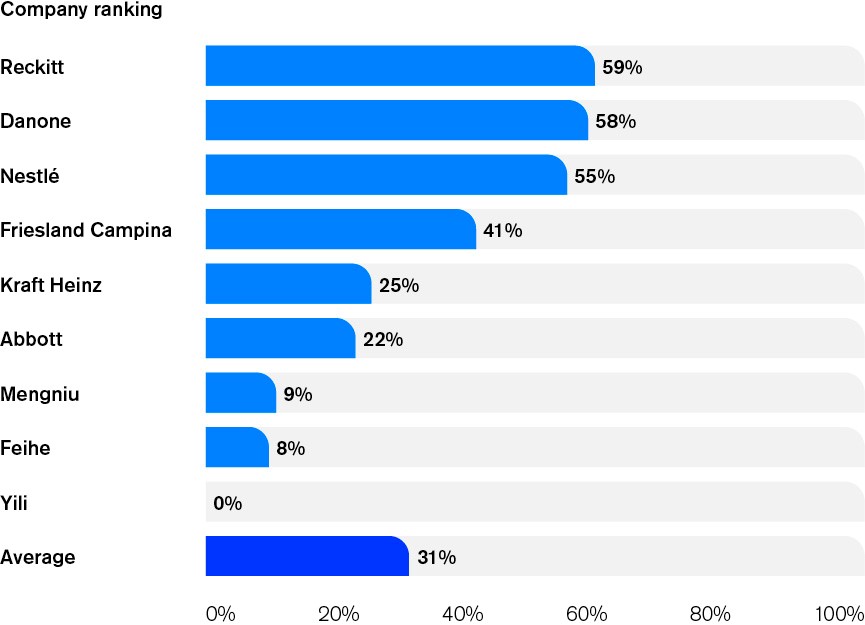
ATNI launches new groundbreaking report on lobbying of BMS companies
3 June 2021ATNI has just launched a new groundbreaking assessment of the lobbying policies, management systems and disclosure of the top 9 Breast-Milk Substitutes (BMS) companies globally. The ‘Spotlight on Lobbying report’ is the first report that used the Responsible Lobbying Framework as a basis to develop the methodology for the assessment.
The scoring and ranking presented is based solely on information publicly available by 31st July 2020. The evaluation focuses on three elements of companies’ lobbying: policy commitments, management systems, and disclosure. Information published by third parties is not included nor is confidential information provided by the companies to ATNI.
Scores are presented in percentages, based on the scoring system outlined in the report. A score of 100% would indicate that a company:
- Has a policy that embodies all of the key commitments set out in the methodology in terms of its approach to lobbying.
- Has effective management systems to implement all of those commitments.
- Publishes its policy and other information to provide transparency about what it lobbies on, and how.
Reckitt ranked first with a score of 59%, followed closely by Danone with a score of 58%, closely followed by Nestlé which scored 55%. FrieslandCampina ranks fourth, with a score of 41%, with KraftHeinz and Abbott in fifth and sixth places, with scores of 25% and 22% respectively. Mengniu scored 9%, Feihe 8% and Yili 0%. The average score across all nine companies was 31%.
ATNI’s objective in beginning to focus on this issue, and the aim of this report specifically, is to stimulate baby food companies to be responsible in their lobbying and to support the adoption of comprehensive, well-drafted legal measures in the markets in which they operate, to give effect to The Code and thereby protect breastfeeding.
* The findings of this report regarding companies’ performance rely on publicly available information only. Several factors beyond the companies’ control may impact the availability of information, such as differences in disclosure requirements among countries or capacity constraints within companies, amongst others the Covid-19 pandemic. Therefore, this report may not represent the full extent of their efforts.
